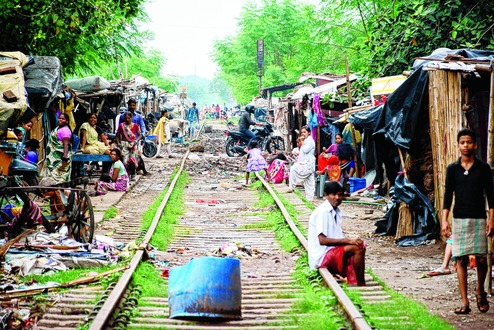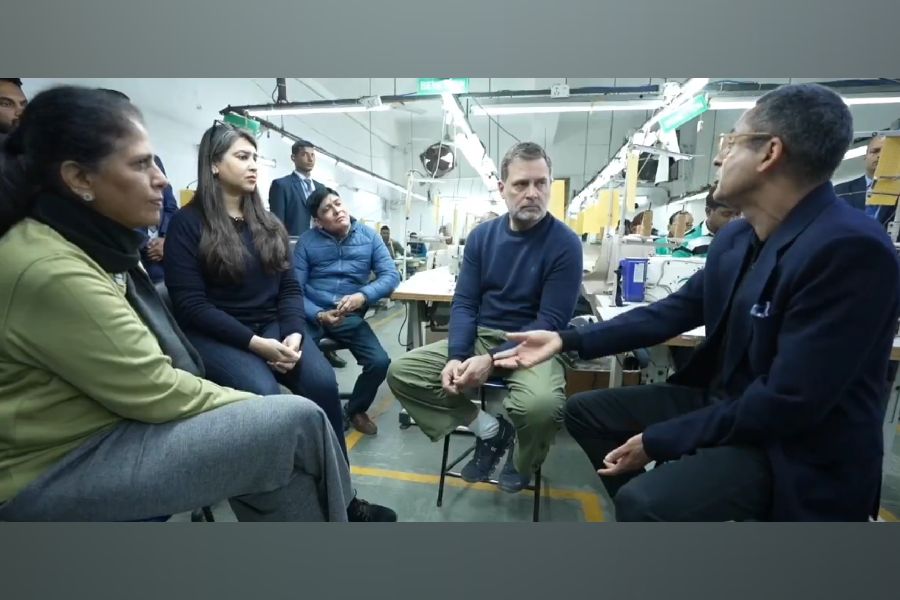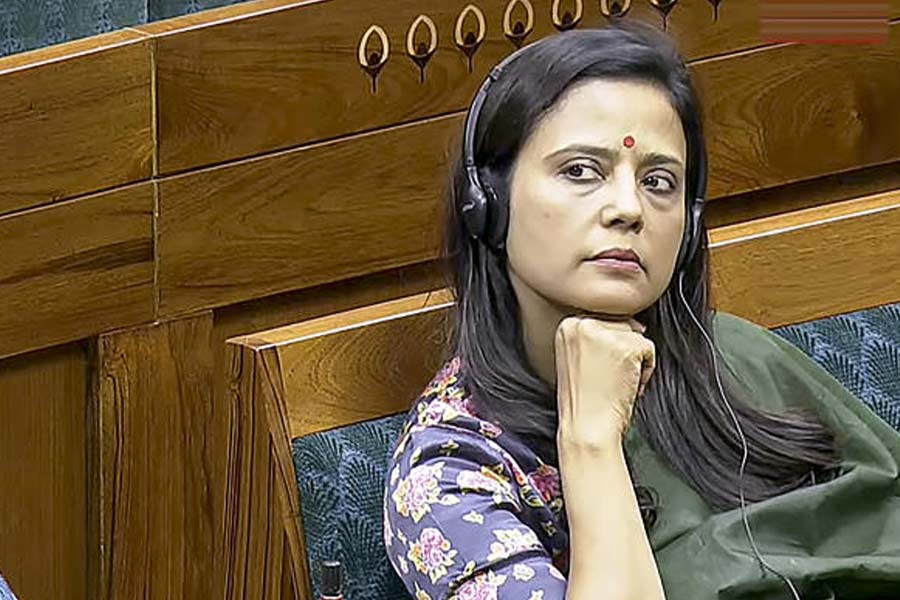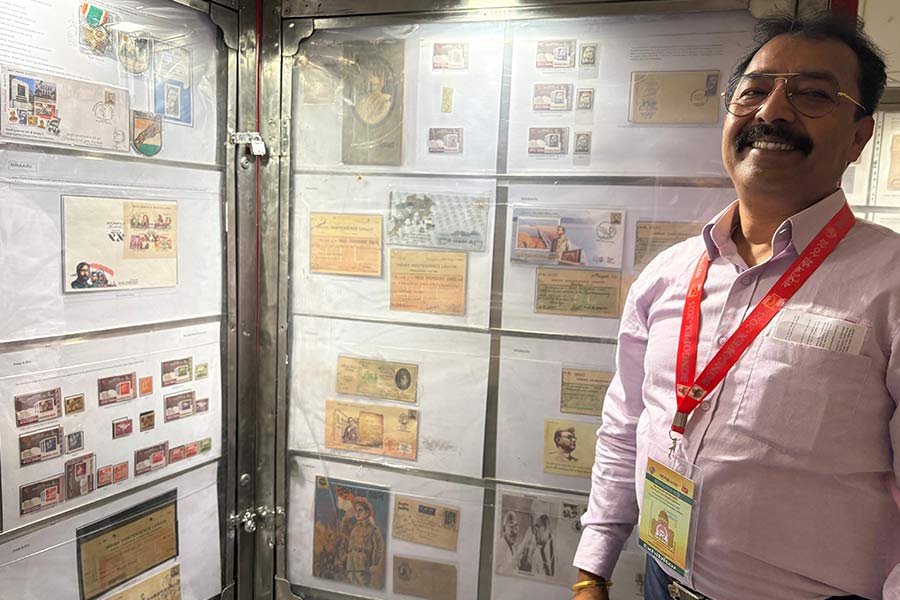
Slum dwellers sit on the tracks while a motorcyclist crosses it near Hartali Mor. Picture by Nagendra Kumar Singh
Patna High Court has directed Indian Railways to file a counter affidavit, stating the viability of running the Patna-Digha Ghat DMU train while exploring proposals for handing over the track plot to the Bihar government for smooth functioning of traffic in Patna.
A Patna High Court division bench of Justice Ravi Ranjan and Justice Sanjay Kumar passed the order after railways said it was incurring huge losses running the train. The bench said it was startling that 'the maintenance cost of the Patna-Digha section is Rs 6,07,200 per month, whereas the income is merely Rs 7,800 per month'. It means the railways are incurring a loss of about Rs 6 lakh per month. 'Now the question would be as to what can be the public interest for which the railway is running this section even after incurring a loss of about Rs 6 lakh per month,' the bench observed.
The court further ruled: 'Let the general manager, East Central Railway (ECR), answer it by filing an affidavit. If it is found that the same is not in the interest of the railways or public interest then what would be the proposal from their side so that the land concerned may be utilised in a different manner by handing over to the state government so that impediment in free flow of traffic across the section may be dealt with properly and what could be the terms of such type of proposal etc. may also be indicated in the counter affidavit.'
The court took the matter suo motu and it will next come up for hearing on September 7.
The Patna-Digha Ghat rail runs at 20kmph. It crosses places like Hartali Mor, Rajiv Nagar, Shivpuri, Punaichak, Secretariat and R-Block in the mornings and evenings, leaving commuters stranded during peak hours.
The train runs nearly empty. A few who board it don't buy the Rs10 ticket, as there are no ticket-checkers aboard. The train halts several times on its near 10-km journey, as those living in slums on the route often tether their cattle to the tracks, removing them only when the train approaches.
A railway official speaking on condition of anonymity said: 'Railways is running this train only to ensure the tracks and plot are not encroached upon by the slum dwellers.'
The train started in 1862 but was discontinued for several decades until then Union railway minister Lalu Prasad Yadav restarted it 2004. In 2013, the train was suspended for three months because of construction work at Patna Junction. 'The train used to be mostly on time and a good number of people used it in the early days,' said K.N. Prasad, who has been living in Digha for over 30 years. 'Platforms at the halts were accessible then. But today, one getting off at the halts has to wade through muck to reach the main road. People have encroached upon every inch of land except the tracks. Railways are spending a fortune to run this service that serves nobody.'
One can imagine the futility of running this train from the fact that the average income from the train is just Rs 250-300; from the toy train Rs 7,000-8,000. Chief minister Nitish Kumar had earlier urged the railway ministry to hand over the 7km-long track to the state government so that it could be converted into a four-lane highway to reduce traffic elsewhere.
In 2012, then minister of state for railways K.H. Muniyappa, during a visit to Patna, had said the idea of land in lieu of land was good. He said a decision would be taken soon as Bihar was ready to provide land.
But the plan got stuck because of the railways' insistence on having land in exchange at either Patna or Hajipur while the state government was offering land at Digha, on the outskirts of Patna, and Nabinagar in Aurangabad district in exchange for required land.
In 2016, Union railway minister Suresh Prabhu, at a meeting with then deputy chief minister Tejashwi Prasad Yadav in New Delhi, had agreed in principle to transfer 71 acres of the Patna-Digha rail line land to the state government, which would provide its plot to the railways in return.
But the matter is still pending and now the high court has taken suo motu cognizance of it.











